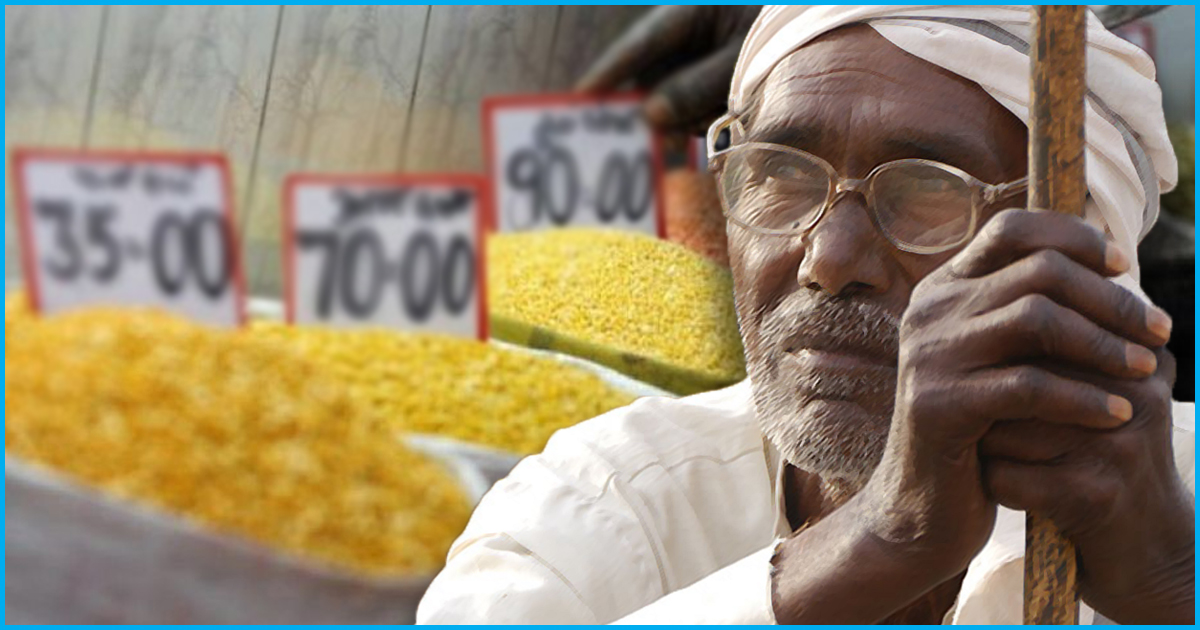
Govt Allows Import Of Pulses From Mozambique, Even As 6 Lakh Tons Of Pulses Lies Unsold With Farmers
On May 16, India’s Directorate General of Foreign Trade (DGFT) issued a trade notice regarding implementation of the India-Mozambique MoU. According to it, India will import around 150,000 Metric Tons(a unit of weight equal to 1,000 kilograms) of Mozambique grown Pigeon Pea(commonly known as Tur/Arhar).
According to estimates, government agencies already hold around 1 million MT of pulses, whereas the farmers have stocks in the 500,000-600,000 MT range. The farmer community is worried about the effect on prices this surplus is going to have. Already, pulses in Indian markets are being sold way below MSP.
India is the highest producer, consumer, and importer of pulses in the world. In 2016-17, pulses were in short supply due to crop failure and other reasons. The price of pulses was around 100-150 Rs/kg that year. After PM’s visit to Mozambique in 2016, India signed a MoU with the African nation. India gave assurance of guaranteed purchase of pulses over the next three years.
Since 2016, the area under pulses cultivation in India has increased, along with an increase in productivity. The agriculture ministry has attributed the improving output of pulses to their various farmer-friendly initiatives. In 2016-17, India imported 66.61 Lakh MT of pulses, which fell to 55.40 Lakh MT in 2017-18 (till Feb 2018).
As reported by Business-Standard, Bimal Kothari, Vice president of the Indian Pulses and Grains Association said, “We have written to the government to not open import quota now, but do so when prices increase, which is expected during festival times. Allowing import during that period will have price stabilising impact, instead of the price-depressing impact, which is the case now.”
On May 11, DGFT placed a quantitative cap of 2 lakh MT on import of pigeon pea for this fiscal. There have been demands that the 1.5 Lakh MT Tur to be imported from Mozambique should be considered under this 2 Lakh limit, and not separately.
The Logical Indian Take
Erratic weather patterns and sudden crop failures can leave a country struggling for food. To ensure, more than 100 crore Indians have an adequate supply of food grains, we have to increase our productivity and form bilateral or multilateral relationships.
However, the farmers have to bear the burden in both cases, under-supply or oversupply. If the crop has failed, farmers can face subsistence crisis. If there is bumper production, the farmers are unable to get remunerative prices for their crop.
 All section
All section













